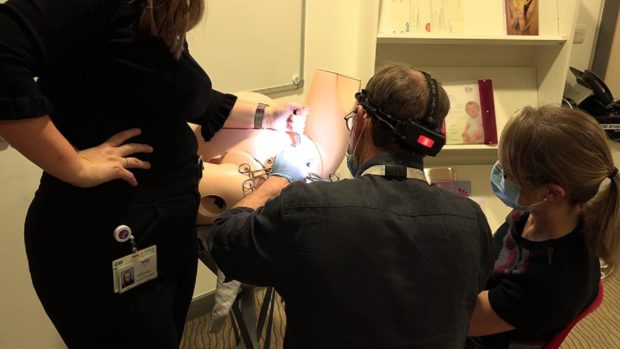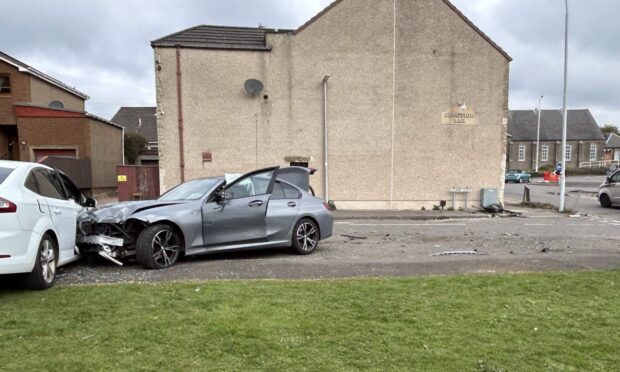A new training aid, developed in Fife, is helping to equip trainee medical staff from around the world with the skills to prevent late miscarriage and premature labour.
It was invented by Dr Graham Tydeman, consultant in obstetrics and gynaecology at Kirkcaldy’s Victoria Hospital, in conjunction with the St Thomas’ Hospital, London, and Limbs and Things.
The lifelike simulator allows trainees to perform hands on cervical cerclage in advance of a real-life emergency.
The procedure involves an emergency stitching around the cervix and is necessary when the cervix shortens or opens too early during pregnancy, helping to prevent late miscarriage or extreme premature labour.
It is not a common event and the simulator was developed by Dr Tydeman following a request from medical trainees across the UK.
The device has already been warmly received by hospitals and training institutions across the world – with orders from countries including New Zealand and India.
Ten percent of the cost of every unit sold will go towards supporting the work of the research and development department in Fife.
Dr Tydeman said: “The reason this was developed is that it is not a common procedure and is very difficult to teach trainees.
“Increasingly women are understandably asking about the experience of their surgeon and anyone having this procedure understandably does not want it to be the first one that a doctor has ever done because if it goes wrong there could be tragic consequences with loss of the baby.
“However, if a trainee has shown suitable skills using this simulator, I would be able to confidently reassure women that the doctor had been adequately trained, although a more experienced person would always help during the actual operation for the first few procedures on real women.
“We wanted to make the simulator as true to life as possible, so it was taken to experts from all over the world for their design input before the final product was decided upon.”
Every unit sold has NHS Fife branding on it. Dr Tydeman said the kingdom was punching above its weight in this field.
“Whenever I go to research meetings, very commonly there is a map shown of the centres that have contributed to research and as expected there is a lot of participation from the main universities in the UK but also there is commonly one little dot up here in Fife because we are contributing so much to national and international research as well as the development of ideas like this simulator.”
Speciality trainee, Laura Stirrat, has been doing specialist medical training for the last five years.
She said: “In the course of my training I have only seen cervical cerclage a handful of times.
“But I think having the opportunity to practice a skill several times in a safe setting helps to build confidence.
“I think it is essential for our training and for patient safety that we have the opportunity to learn some of these difficult and complicated procedures on a model before we are performing them in an emergency situation.”










